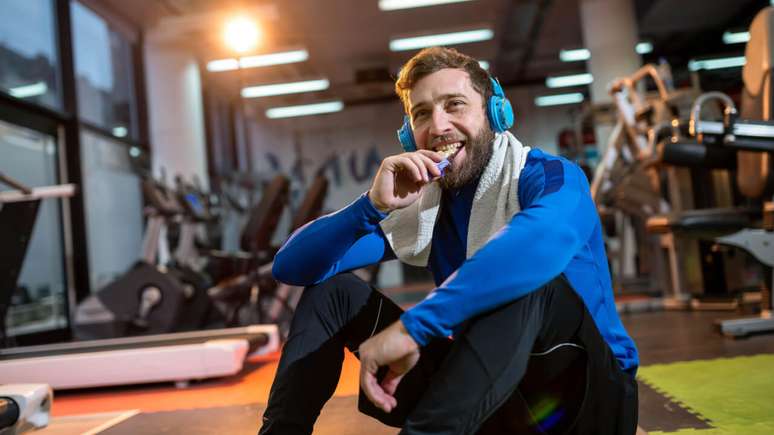Balance helps keep this type of food in a balanced diet
Are you a professional or amateur athlete and still can’t resist when you come across a sweet treat? Calm! You can continue your active physical life with peaceful consumption of sweets. This observation is not enough to dispel doubts, for example: what is the impact of post-workout sweets?
Understand the impact of sweets after training
“The consumption of post-workout sweets can have variable impacts depending on the type and quantity ingested. Sweets are almost generally composed of simple carbohydrates, such as glucose and fructose, which can be useful for a rapid turnover of muscle glycogen, accelerating the energy recovery and nutrient absorption,” he said in an exclusive interview with Sport Life the clinical and sports nutritionist Dereck Oak.
Again, you need to be careful when eating sweets after training, in other words, just as a slight insulin spike can be beneficial and used as a strategy, a high insulin level affects fat storage and also impairs the benefits of exercise.
“I suggest after training to favor the consumption of sweets associated with proteins and if possible with complex carbohydrates and fibre, such as granola with dried fruit and cocoa, fruit combined with yoghurt and a little honey or even a smoothie protein with fruit,” suggests Derek.
For a long time it was argued that it was necessary to eat food immediately after physical activity and that the ideal would be to consume proteins and carbohydrates within 30-60 minutes after the “game”, which denotes the benefit of taking advantage of the activity physics called “window of opportunity”, which optimizes protein synthesis and glycogen turnover.
“The idea of the post-workout window of opportunity has been the subject of debate. More recent research indicates that it may be more flexible than previously thought. However, practice also shows us that it is not attractive to do this for a long period of time without eating anything after physical activity and that is why I suggest respecting this period of maximum 60 minutes to consume the post-workout meal, including sweets”, said the nutritionist.
What is the recommended amount of sweets to consume after training?
An answer that must take into account an objective and current diet, the intensity of the training and the exercise method, reasons that still do not prevent an “advice” from this professional.
“There is no single right answer, but I would say add a small portion of 20 to 30 g if you choose a dessert such as chocolate. And a larger portion of up to 100 g if you choose a fruit. Remembering that these quantities are just imagine adding a dessert to the diet and it must be calculated individually by a professional”, he explained.
What sweets can not be “devoured” under any circumstances after training?
“Sweets high in saturated fats and refined sugars, such as industrial cakes, ice cream and chocolates with added trans fats, should be avoided after training. These components can impair muscle recovery, cause very high insulin spikes, not they tend to contain fiber and much less protein and, moreover, can end up promoting unwanted weight gain and harm cardiovascular health”, he guaranteed.
Is it true that post-workout dulce de leche is good for you?
“Dulce de leche is a trending food on the Internet and many take it as a rule. It can always be used as a pre or post workout. This is wrong. Dulce de leche is a good sweet and carbohydrate-rich option in pre-workout and also in the post-workout. However, for this you need to train well, with a good frequency and with an organized diet. Eating dulce de leche every day in the pre or post-workout plan can end up hindering your results”, he concluded Dereck Oak.
Source: Terra
Ben Stock is a lifestyle journalist and author at Gossipify. He writes about topics such as health, wellness, travel, food and home decor. He provides practical advice and inspiration to improve well-being, keeps readers up to date with latest lifestyle news and trends, known for his engaging writing style, in-depth analysis and unique perspectives.








